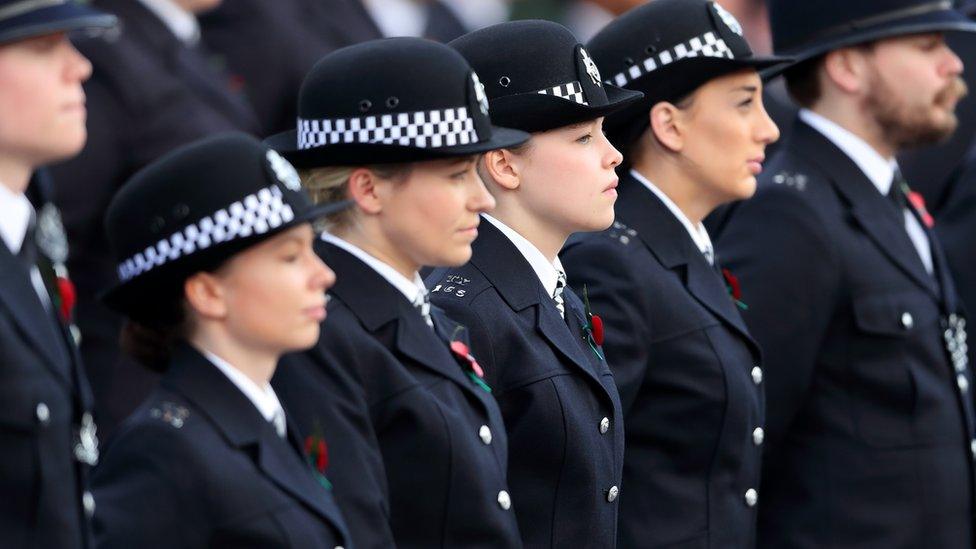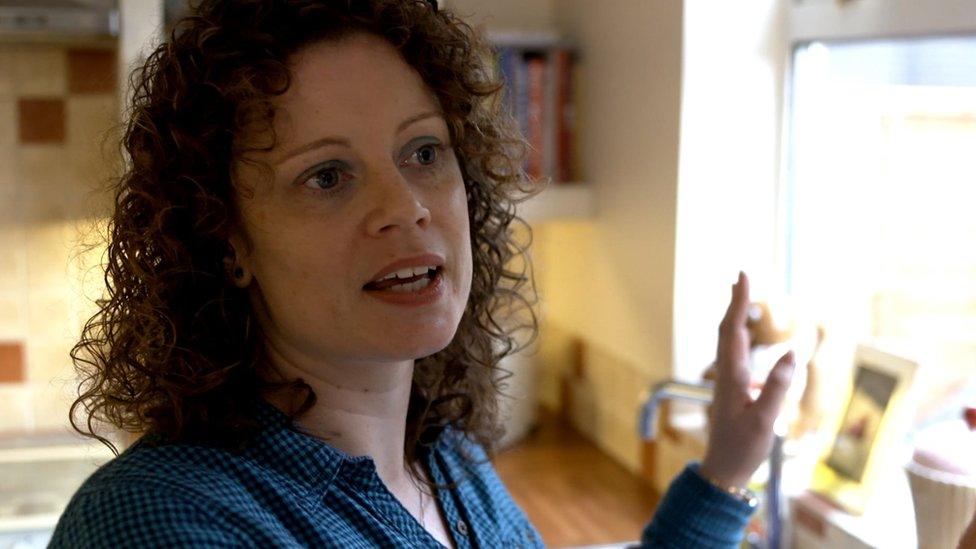Can you become a detective in 12 weeks?
- Published

Police forces in England and Wales hope to turn graduates into detectives within 12 weeks
Police forces in England and Wales hope to tackle a shortfall of 5,000 detectives by making it easier for people to become investigators.
After a pilot scheme in London, graduates will be able to complete a 12-week fast-track course, to become trainee detective constables.
"I personally think it's a good idea," says James, a London-based graduate and police officer.
"We have a huge shortage of detectives because it's not an appealing job to many people. It's a lot of work and the same amount of money as being a constable.
"But the 12-week course might find people who want to be detectives, but might not want to be a Bobby on the beat."
The course being developed eliminates the need for trainee investigators to work as a uniformed constable.
But the Police Federation, which represents officers across England and Wales, has called the idea "an insult to the experienced hard-working detectives" in the force.

How do you become a detective?

Currently police officers have to complete a two-year probationary period as a constable, including working in local communities, answering 999 calls and executing arrest warrants.
After the probationary period, an officer can apply to be a detective, where they will then be sent on a training course to become a trainee detective constable (TDC).
Under the plan, graduates will be able to become TDCs without completing two years as a uniformed officer.
During a 12-week course the officers will learn about subjects such as the theft act, how to use reasonable force in an arrest, handling evidence, interview techniques, and stop and search.

Patrick McCarthy was a detective for more than 20 years in the Metropolitan Police.
He said: "I fail to see how for someone with a university degree, having a 12-week course will have all of the skill sets required to be a good detective."
Before Mr McCarthy retired he was a detective sergeant. He said academic qualifications could not replace the experience of years of working as an officer.
He worked as a uniformed officer for three years before moving to the criminal investigation department (CID), where he took part in a 10-week training course.
He believes it takes 10 years before a recruit can be considered as a qualified detective.
"What we've got is a perfect storm, we've got inexperienced people in charge of important cases. Also you've got a shortfall. So those people who are there have so much stress and little time."
John, a retired CID detective from north-east England, believes that by the time officers become a detective they are already established and accomplished. While Graham Cole, a detective constable until 2006, said it was a unique job with a "tremendous" responsibility.
"You have to make some very big, very quick and serious decisions. You make those life-changing decisions within a fraction of a second," he said.
Paul, 30, a constable who wants to be a detective, thinks that graduates might be given an unfair advantage.
He has been an officer for more than two years and applied to several CID departments in different forces, but is not eligible for the fast-track scheme because he does not have a degree.
- Published11 June 2018

- Published2 March 2017
